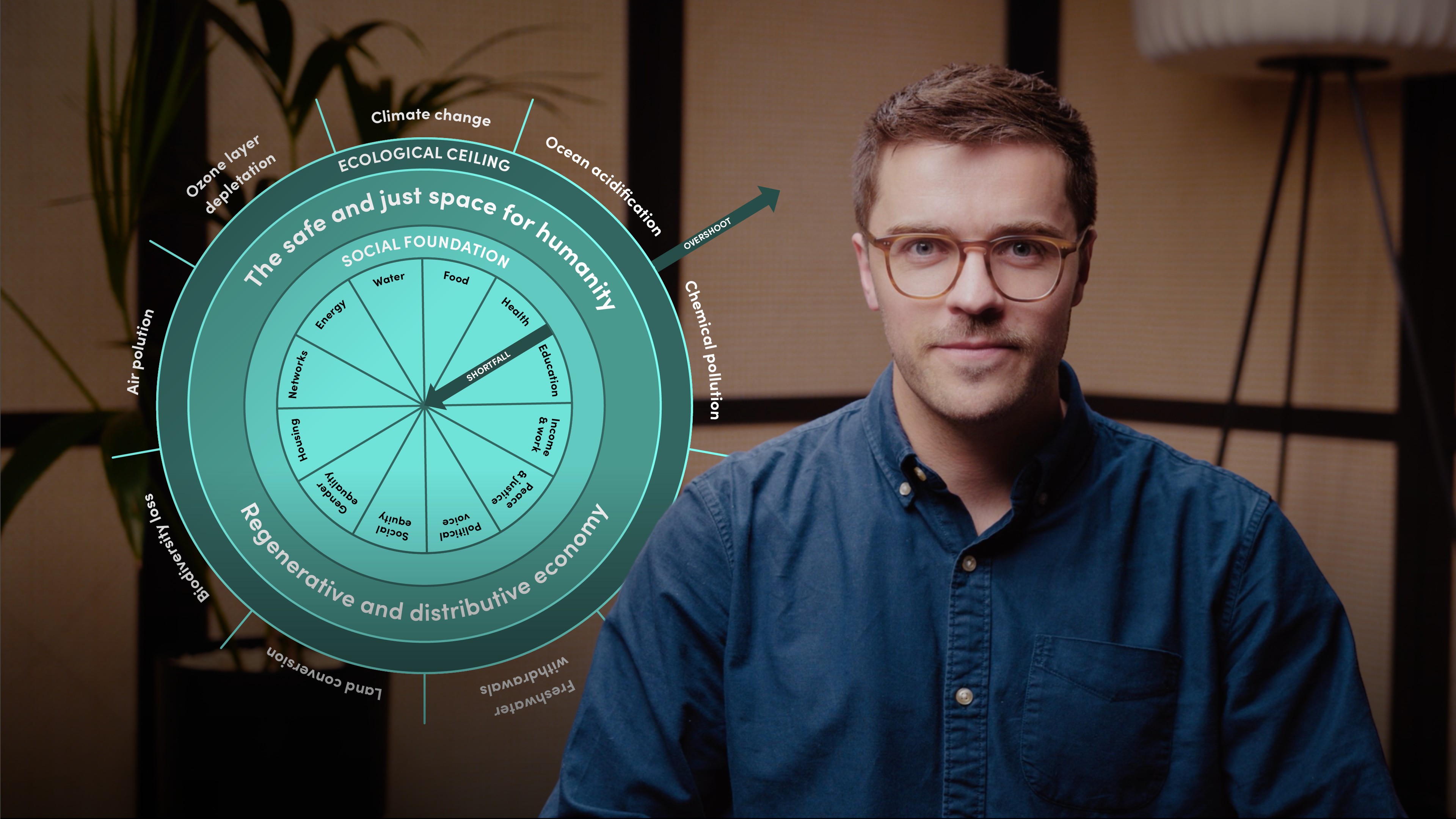
Implementing Circular Economy Processes

Connor Hill
15 years: Circular economy strategist
In this video, Connor discusses implementation of the circular economy. He will touch upon how we can bring circular processes into our lives and organisations and then discuss the external factors affecting the circular economy.
In this video, Connor discusses implementation of the circular economy. He will touch upon how we can bring circular processes into our lives and organisations and then discuss the external factors affecting the circular economy.

Implementing Circular Economy Processes
18 mins 34 secs
Key learning objectives:
Understand the 5 circular steps to help us think more circularly
Understand the considerations a non-product organisation would have to make
Outline the external factors impacting the circular economy
Overview:
Due to our economic model of overproduction and overconsumption, we are exceeding Earth’s planetary boundaries. The circular economy is key to living within our planetary boundaries and will be vital in helping us achieve our net zero commitments. However, to create a circular economy, we need to all work together, modifying how we find, use, and reuse the resources we have.
- IT use and hardware
- Construction of your office
- Building insulation
- Office furniture
- Office flooring
- Advertising collateral
- Building waste
- Building utilities
- Water usage
- Waste and geopolitics - Many countries exported waste to China from 2005 to 2016. However, when China imposed a ban on importing waste in 2017, these countries had to find quick solutions to work out where they should send their waste to, or even better, start to invest in recycling in their own countries.
- Legislation - Circular legislation is becoming more prominent and brands are encouraged to design long-lasting products and provide services to give users the right to be able to repair the product. The Extended Producer Responsibility (EPR) legislation is a fee brands and companies have to pay to put particular products into the marketplace. EPR revenues are reinvested to support awareness programmes and recycling facilities.
- Circular economy and Net Zero - Circular economy can be a huge enabler for us to achieve our net zero commitments. If we are economically able to produce high quality recycled steel and concrete, it will have huge GHG-saving potential from these high emitting sectors.

Connor Hill
There are no available Videos from "Connor Hill"

